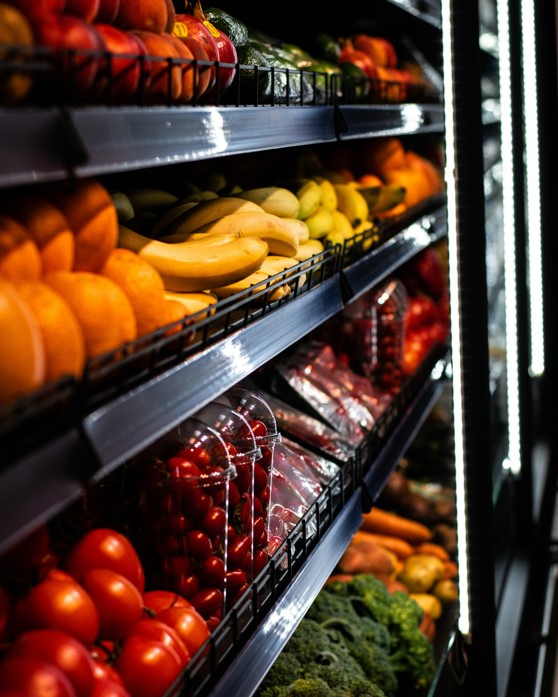As shelves fill with fresh, wholesome choices, the debate over ultra-processed foods and their health impacts is gaining urgency.

Sustainability update October 2025
Article last updated 14 November 2025.
Pharmaceutical tariffs – uncertainty spikes as Trump sanctions investigation into trade partner drug pricing
At the end of September, Donald Trump announced that the US would introduce 100% tariffs on imports of branded or patented drugs from 1 October, unless manufacturers were building or investing in production facilities in America. While generic medicines – accounting for around 90% of drug sales in the US – were excluded from the planned hike in duties, exporters were left wondering what they might be forced to accept, given existing trade and investment agreements. The EU reminded Washington of its recent all-inclusive 15% tariff ceiling deal, while the UK – who exported $6.5 billion worth of branded drugs to the US in 2024 – pointed to investments in American production sites by some of its larger pharmaceutical companies.
The tariff deadline looked less ominous as the US began pricing negotiations with the world’s major pharmaceutical companies, using a ‘most-favoured nation’ approach to broadly align the cost of US medicines with lower international price points – in 2024, the nonprofit RAND Corporation estimated that US drug prices were on average three times higher than those in other developed economies. Through October, Pfizer, AstraZeneca and Merck's US unit EMD Serono agreed pricing and investment deals with Washington that, for signatories, effectively suspended the threatened 100% import tariffs while those agreements remain in force. The likes of Novo Nordisk, Eli Lilly and Johnson & Johnson are set to follow.
Companies also agreed to participate in a direct purchasing platform, TrumpRx.gov, which claims to offer access to drugs at a significant discount, though the 90% of Americans with existing health cover may still find purchasing drugs through their insurance a cheaper option. Implementation and enforcement are still evolving, with agencies granting specific reprieves and weighing partner-country exemptions, so the scope and timing of any tariffs may shift as negotiations progress.
While the initial round of pricing negotiations eased some of the tensions regarding the threatened tariffs, reports emerged later in October that Trump had sanctioned an “imminent” investigation to identify any US trading partners still underpaying for drugs, including weight-loss medications. Washington has signalled that action would be taken against countries that failed to meet its pricing demands and the move marks another escalation in Trump’s volatile, protectionist trade policy.
Ultra-processed foods: health concerns increase
Ultra-processed foods (UPFs) are produced using industrial processing techniques involving chemical preservatives and additives not found in natural food sources. Processed foods offer convenience, affordability, product consistency, and long shelf-life, but those benefits are counterbalanced by high levels of salt, sugar and fat and low levels of fibre and essential micronutrients.
The physiological and health effects of UPFs are still being explored, including whether high levels of consumption are associated with an increased risk of negative health outcomes, including cancer. For example, clinical evidence suggests that diets high in UPFs can exacerbate the risks of early-onset bowel cancer by disrupting insulin signals, promoting chronic inflammation of the digestive system, and altering the balance and efficiency of the gut microbiome. UPF consumption in the UK accounts for more than 50% of the country’s calorie intake which is estimated to be higher than most other European countries.
Current regulatory and policy frameworks for restricting the availability of unhealthy foods are based on the UK Government’s High in Fat, Salt and Sugar (HFSS) nutrient profiling model, which does not take the level of processing into account. However, there is a high degree of overlap between HFSS foods and those that are ultra-processed which means that policies focused on the reduction of HFSS foods, also target over half of all UPFs. Therefore, as academic research continues to develop, it is important that attention continues to be given to policy which reduces HFSS products in our food environment.
Tweaking ingredients and reformulating individual products won’t go far enough to fix food systems that need to better manage their health and environmental impacts. Systemic issues need systemic responses, combining policy interventions with individual company strategies. This is why Greenbank established the Investor Coalition on Food Policy in 2021 in response to the National Food Strategy’s “farm to fork” review of England’s food system. It works to engage collectively with the government and policymakers to drive greater transparency across food sectors and increase the level of understanding of material risks such as poor nutrition, biodiversity loss and sector-related climate change. The coalition continues to watch emerging evidence on UPFs closely. You can read about a recent policy success for the Investor Coalition on Food Policy here.
EU parliament rejects plan to extend cuts to sustainability reporting and due diligence regulations under Omnibus proposal
In early October, lawmakers in the European parliament agreed an expanded series of cuts to the region’s corporate sustainability reporting and due diligence directives recommended by the EU Commission’s Omnibus proposal. Submitted in February, Omnibus sought to reduce compliance burdens on companies after concerns were raised that regulatory frameworks including the Corporate Sustainability Reporting Directive (CSRD), Corporate Sustainability Due Diligence Directive (CSDDD) and the Carbon Border Adjustment Mechanism (CBAM) were adversely affecting European competitiveness. Negotiations effectively exempted 80% of European companies from the CSRD by increasing the employee threshold from 250 to 1,000. A similar change to the CSDDD saw the coverage threshold raised to companies with 5,000 or more employees and €1.5 billion in revenues. The compromise package for both directives followed demands from farther-right parties to raise the employee and revenues thresholds even higher and remove requirements in the CSDDD for companies to adopt climate transition plans.
However, on 22 October, MEPs voted by 318 votes to 309 to block the compromise package with parties on the left and right deeply divided over how Europe’s sustainability framework should function. Led by the Greens, the left voted against the package arguing that the scaling back of directive powers was akin to deregulation. Dissenting voters on the right argued that the reduction in scope across all directives didn’t go far enough. A new vote to break the impasse was scheduled for 13 November – supporters of a more robust regulatory framework hope that the European parliament will use the time to rebuild a majority that supports meaningful disclosure and accountability.
When the Omnibus proposal was first tabled by the EU Commission, Greenbank joined 211 investors and service providers in calling on the Commission to preserve the integrity and ambition of the region’s sustainable finance framework. The joint statement led by the Institutional Investors Group on Climate Change (IIGCC) stressed the long-term value of consistent and ambitious rules on the sustainability issues companies should be managing and reporting on. The statement argued such policy interventions, help investors manage risks, identify opportunities, and reorient capital towards a more competitive, equitable, and prosperous net zero economy.




